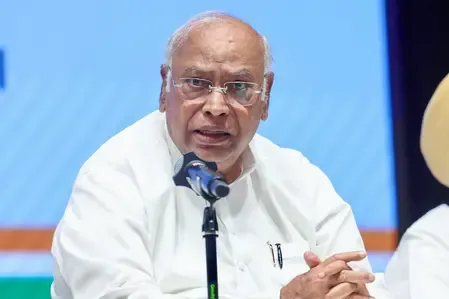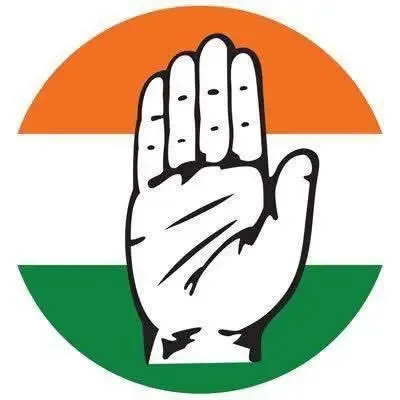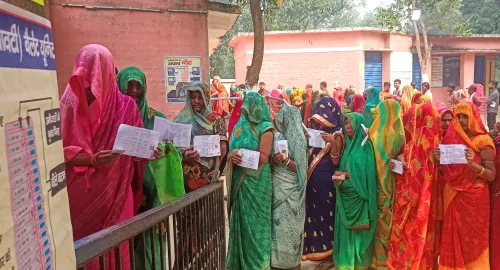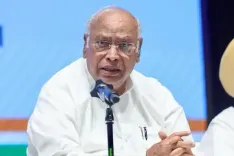The Significance of Economic Intelligence in Modern Security

Synopsis
Key Takeaways
- Economic intelligence is crucial for national security.
- The Sino-Pak alliance poses a significant threat to India.
- Covert operations have shifted from military to economic targets.
- The role of AI and data analytics is increasingly vital in intelligence.
- India's foreign policy aims for multilateral cooperation.
New Delhi: The withdrawal of Soviet troops from Afghanistan, primarily driven by the collapse of the Soviet economy, resulted in the fragmentation of the USSR and concluded the Cold War in 1991.
This event signified the beginning of an era characterized by ‘proxy wars’ and the emergence of covert operations aimed at undermining the economies of targeted nations, aligning with the new doctrine that asserted that national security and economic security are intrinsically linked.
Warren Christopher, Secretary of State under President Bill Clinton, articulated this concept in 1993—well after the USSR's collapse had positioned the US as the sole Superpower steering the unipolar world order.
He emphasized that military power could be challenged through ‘asymmetric’ tactics.
Interestingly, the CIA, which once had a formidable Economic Intelligence Division, faced criticism for allegedly overestimating the Soviet Union's economic performance and misreading the situation leading up to its dissolution.
Robert Gates, then CIA Director, redefined the agency's goals in the post-Cold War landscape, focusing on supporting US policymakers in shaping the nation’s economic trajectory, monitoring technological trends impacting national security and the economy, and implementing counter-intelligence measures to safeguard the economy from those who do not adhere to the rules.
Following the Cold War, the US government placed greater emphasis on economic intelligence, driven by the belief that future national security threats would be predominantly economic rather than military, with economic dominance becoming a key objective of state policy.
The scope of economic intelligence expanded further as the US administration instructed the CIA not only to gather information relevant to the government but also to assist the American corporate sector by providing access to ‘country briefs’, facilitating their expansion into international markets.
Stansfield Turner, CIA Director during President Carter's administration, expressed that in an era increasingly focused on economic strength, there must be a more symbiotic relationship between the realms of intelligence and business.
US intelligence agencies remained vigilant against the attempts of nations like China and Russia to infiltrate American companies, industries, and research facilities.
The FBI reportedly focused on detecting economic espionage aimed at US targets, especially given reports of Chinese 'think tank' entities and corporate organizations serving their national security interests.
The Clinton Administration introduced the Economic Espionage Act in 1996 to address this specific threat.
In India, the significance of economic intelligence has continually grown as the nation aspires to rank among the three largest economies globally in the near future.
Global threats such as terror funding, the narcotics trade, and human trafficking have jeopardized national security, necessitating the establishment of specialized agencies like the National Investigation Agency (NIA) and the Enforcement Directorate, alongside the existing Economic Offences Wing of the CBI.
The National Intelligence Agencies of India and these investigative bodies could mutually benefit from sharing information regarding these covert threats, which is why coordination among them has gained newfound importance and urgency.
Intelligence is not inherently ‘evidence’ but aids in constructing what can be presented in courts as evidence; likewise, investigations can uncover information valuable for intelligence that can further help in identifying security threats.
A crucial aspect of economic security is the protection of strategically significant technologies and economic entities that are vulnerable to covert threats of subversion and sabotage from adversaries.
Well-defined arrangements have been established under the guidance of the Intelligence Bureau, India's premier internal security agency—these have gained increased significance in the context of proxy wars. Cybersecurity poses a significant challenge for all strategically important entities, as they rely on exclusive IT systems susceptible to enemy hacking attempts.
Today's intelligence agencies must excel in data analytics, as this has become a vital source of information about future trends in both global politics and the economy. Artificial Intelligence is enhancing data analytics capabilities—AI applications in intelligence and security domains are rapidly unfolding.
A major threat to India's national security stems from the strategic partnership between Pakistan and China, primarily aimed against India.
The Sino-Pak axis has promoted an anti-India agenda on the international stage and engaged in covert operations intended to undermine India's internal security and economy.
Chinese drones have been utilized by Pakistan to drop arms and narcotics in vulnerable border states like J&K and Punjab, exacerbating youth drug addiction issues. Pakistan facilitated a 'give and take' between China and the Taliban Emirate following their return to Kabul in 2021, allowing the former to extend its Belt & Road Initiative to Afghanistan through economic investments, while the Taliban agreed to refrain from raising concerns related to China's Muslim minority in Xinjiang.
Both hostile neighbors of India, China and Pakistan, are intensifying their activities along the border—the former in Ladakh and the latter across the International Border in Jammu, where militant infiltration, possibly involving former military personnel, has drawn attention.
In light of the turmoil in Bangladesh instigated by the Jamaat-e-Islami-Pak ISI collaboration, Islamic militancy may also be incited by Pakistan within India. It is noteworthy that the Students Islamic Movement of India (SIMI), an offshoot of Jamaat, formed the Indian Mujahideen (IM), which perpetrated terrorist activities between 2006 and 2008. The Sino-Pak alliance appears to be coordinating efforts in various areas surrounding India.
India has navigated international relations by pursuing mutually beneficial bilateral agreements extendable to multilateral partnerships that support world peace and promote humanity's welfare.
As India rises as a significant power, it is in the nation's interest to base its foreign policy on a multipolar worldview. India recognizes that in the post-Cold War environment, it must prepare for covert strategies from adversaries and strive to strengthen its economic position through bilateral and multilateral alliances.
India collaborated with the US to establish the India-Middle East-Europe Economic Corridor (IMEC) at the G20 Summit in Delhi in 2023, with an agreement signed by India, the US, UAE, Saudi Arabia, France, Germany, Italy, Jordan, and the European Union. IMEC aims to enhance economic development by promoting connectivity between Asia, the Persian Gulf, and Europe.
This project, which had been temporarily halted due to conflicts in the Middle East between Israel and Hamas and between Iran and Israel, has been revitalized by President Trump.
It seeks to counter China's BRI, which has allowed China to extend its political influence across various global regions. China has learned from the USSR's disintegration and is pursuing an economic path to superpower status while continuing its military and technological advancements against the US.
As tensions rise between the US-led West and the China-led coalition of nations opposed to the US, India faces the challenge of fortifying its security and economic stature without overtly aligning with either faction.
India's strategic framework appears to be yielding positive results. The mandate for national intelligence agencies has significantly expanded, incorporating economic intelligence in a comprehensive manner.
(The writer is a former Director of the Intelligence Bureau)









